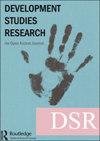阿拉伯联合酋长国作为全球捐助国:十年来对外援助数据的透明度揭示了什么
Q2 Social Sciences
引用次数: 11
摘要
阿拉伯联合酋长国(UAE)已成为对外援助的主要贡献者,无论是在国民总收入的百分比还是在总额上。从历史上看,阿联酋的援助是不透明的,外界对其对外援助组合知之甚少。这种情况在2009年之后发生了变化,当时阿联酋开始向经合组织发展援助委员会提交详细的项目级数据。基于十年的援助透明度,本文对阿联酋提供的援助的政治经济学进行了研究,并将其投资组合与其他捐助国进行了比较。特别注意分析其援助的三个主要受援国(埃及、塞尔维亚和也门)以及推动这些决定的隐含动机。阿联酋向这三个国家提供的援助大部分是作为一般预算支助提供的,往往与实现政治、经济和(或)军事目标的努力同时进行。根据研究结果,对阿联酋关于南南合作及其寻求互利的叙述进行了评估,并在文献中提出了反对这一点的批评。除了批判性地评估一个研究不足的援助组合的细节外,本文还强调了进一步研究的领域,以加深我们对阿联酋外援的理解。本文章由计算机程序翻译,如有差异,请以英文原文为准。
The United Arab Emirates as a global donor: what a decade of foreign aid data transparency reveals
ABSTRACT The United Arab Emirates (UAE) has become a leading contributor of foreign aid, in terms of percentage of gross national income as well as in total amount. Historically, Emirati aid was opaque, and little was known about the foreign aid portfolio. This changed after 2009 when the UAE began to submit detailed, project-level data to the Development Assistance Committee of the OECD. Based on a decade of aid transparency, this article carries out an examination of the political economy of aid provided by the UAE, comparing its portfolio to other donor countries. Particular attention is paid to analyzing three primary recipients of its aid (Egypt, Serbia and Yemen) and the implicit motivations driving those decisions. The majority of Emirati aid to these three countries was granted as general budgetary support, often in tandem with efforts to achieve political, economic and/or military aims. Based on the findings, an evaluation is made regarding Emirati narratives of South-South cooperation and its seeking of mutual benefit as well as critiques put forward within the literature countering this. In addition to critically assessing the details of an under-researched aid portfolio, this paper highlights areas for further study to deepen our understanding of the UAE’s foreign aid.
求助全文
通过发布文献求助,成功后即可免费获取论文全文。
去求助
来源期刊

Development Studies Research
Social Sciences-Development
CiteScore
3.20
自引率
0.00%
发文量
20
审稿时长
12 weeks
期刊介绍:
Development Studies Research ( DSR) is a Routledge journal dedicated to furthering debates in development studies. The journal provides a valuable platform for academics and practitioners to present their research on development issues to as broad an audience as possible. All DSR papers are published Open Access. This ensures that anyone, anywhere can engage with the valuable work being carried out by the myriad of academics and practitioners engaged in development research. The readership of DSR demonstrates that our goal of reaching as broad an audience as possible is being achieved. Papers are accessed by over 140 countries, some reaching over 9,000 downloads. The importance of the journal to impact is thus critical and the significance of OA to development researchers, exponential. Since its 2014 launch, the journal has examined numerous development issues from across the globe, including indigenous struggles, aid effectiveness, small-scale farming for poverty reduction, sustainable entrepreneurship, agricultural development, climate risk and the ‘resource curse’. Every paper published in DSR is an emblem of scientific rigour, having been reviewed first by members of an esteemed Editorial Board, and then by expert academics in a rigorous review process. Every paper, from the one examining a post-Millennium Development Goals environment by one of its architects (see Vandermortele 2014), to ones using established academic theory to understand development-imposed change (see Heeks and Stanforth 2015), and the more policy-oriented papers that contribute valuable recommendations to policy-makers and practitioners (see DSR Editor’s Choice: Policy), reaches a multidisciplinary audience.
 求助内容:
求助内容: 应助结果提醒方式:
应助结果提醒方式:


